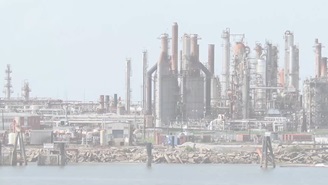ESG Ratings: A Rebuttal of Prevailing Criticisms
“No offence, but…”. This has become a common introduction to questions directed at environment, social and governance (ESG) rating providers and reflects a body of criticism centered on the premise that ESG research and ratings are fundamentally flawed.
Controversial Weapons: Regulatory Landscape and Best Practices
Since the beginning of modern warfare in the 20th century, we have witnessed the development of weapon types that have a severe, disproportionate and indiscriminate impact on civilians, even years after a conflict has ended. Over the past decades, several protest movements have attempted to halt and ban the production of specific, controversial weapon types, and many countries have adopted international conventions to this effect. More recently, some financial institutions have begun to restrict or exclude financing of companies with involvement in certain weapons. This article explores what investors can do, beyond existing legal frameworks, with respect to controversial weapons.
Demystifying Sustainability Linked Loans: Leverage your ESG Rating
While investors are increasingly focused on how their investment decisions impact the environment and key stakeholders, forward-looking lenders also have sustainability at the core of their allocation strategies. As a result, the demand for sustainable finance products has increased in recent years.
Point of Sale Financing: Inclusive for all?
What is Point of Sale Financing? Point of sale financing (PSF) is a relatively new financial product that has garnered significant interest from consumers, retailers and financial institutions. It provides financing to markets that were previously underserviced by conventional financial products but can also be a gateway to impulsive spending and poor financial choices if not managed properly. This article provides a brief overview of PSF, the pros and cons for consumers, a comparison of PSF with conventional lending vehicles and a sector review looking at policies addressing financial inclusion.
Can Italian Banks Avoid Another Financial Crisis?
Italy is the birthplace of the accounting and credit systems and is home to some of the world’s oldest banks. Despite this legacy, poor lending decisions in the past decade and a high number of non-performing loans (NPLs) is putting the Italian banking sector at risk. This article will explore the connection between responsible product marketing practices and the financial stability of Italian banks by analyzing Sustainalytics’ ESG data.
Your Company's ESG Ratings: Understanding Sustainalytics Research Process
In September 2018, Sustainalytics announced the launch of its next generation ESG Risk Ratings, which evaluate the degree to which a company's enterprise value is exposed to material ESG issues. Specifically, they measure a company's exposure to industry-specific material ESG risks, and how well that company is managing those risks. Combining the concepts of management and exposure we arrive at an absolute assessment of ESG risk that is comparable across subindustries, sectors, companies and regions.
India Raises Corporate Governance Standards
India saw several enhancements to its corporate governance framework on April 1, 2019, when the Securities and Exchange Board of India (Listing Obligations and Disclosure Requirements) (Amendment) Regulations, 2018 came into effect. The amendments to SEBI listing regulations reflect the adoption of a slew of recommendations made by the “Kotak Committee” – a blue-ribbon panel formed in June 2017 under the chairmanship of banker Uday Kotak, with the purpose of improving corporate governance standards in India. The committee’s recommendations are being phased in between October 1, 2018 and April 1, 2020.
The Water Scarcity Challenge: Opportunities for Sustainable Solutions
Water may not be a top-of-mind concern for most investors, but it could turn out to be one of the most important investment themes of the 21st century. Market opportunities related to the water industry could reach USD 1 trillion by 2025.[1] As the issues of water quality and availability continue to make headlines, more investors are searching for opportunities to mitigate social and environmental risks while supporting sustainable solutions.
Earth Day 2019 | The Water Scarcity Challenge
Earth Day 2019 is focused on protecting the species that make up our natural environment. With nearly three-quarters of the Earth’s surface covered in water, it’s a natural resource that we can’t take for granted. Human activity has irrevocably impacted this natural resource, affecting the quality and quantity of water available for consumption and for the natural habitat. In this article, we examine the role companies can play in addressing this water crisis and the potential opportunities for investors to support solutions.
Passive ESG Investing: Q4 2018 Sample Portfolio Analysis
The global equities market experienced substantial growth over the first quarter of 2019 as the FTSE All-World (AW) index returned 12.5%. But this growth spurt comes on the tail of a significant selloff during the preceding quarter; the total return of the FTSE AW over Q4 2018 sunk to -12.6%.[i]
Second Party Opinion - Green, Social and Sustainability Bonds
Issuers looking to support their sustainability strategy through sustainable finance solutions have several options, from sources of debt to equity instruments. These solutions include Green Loans, Sustainability Linked Loans, Green Bonds, Sustainable Bonds and more.
Sustainalytics’ Carbon Risk Rating: Platypus Asset Management Live Test
Climate change is at the centre of public debate: from school strikes around the world to a recent landmark court ruling blocking a new coal mine in Australia on climate grounds. It is also increasingly becoming an investment risk and investors are looking to understand how this risk can affect their portfolios.
How will ESG investing fare in a volatile or bear market?
Much has been written about the rise of responsible investing and environment, social and governance (ESG) integration over the past decade. From 2014 to 2016, assets that systematically considered ESG factors in the investment process grew from USD 7.5 trillion to USD 10.4 trillion, with continued momentum over the past several years[i]. However, recent commitments to ESG integration (vs. values-based strategies) have yet to be tested by a significant market downturn. The spike in market volatility experienced in late 2018 has led some to question whether the consideration of ESG factors by investors will continue to flourish in a market environment characterized by investor fear and valuation corrections.
Huawei and Beyond: Increasing Scrutiny of China’s Technology Sector
In December 2018, Canadian authorities arrested Meng Wanzhou, based on a U.S. extradition request. Ms. Wanzhou is the CFO of Huawei, the world’s largest telecom equipment provider and third largest mobile phone manufacturer. In January 2019, the U.S. Department of Justice (DOJ) charged Huawei and Meng with 23 counts of fraud related to alleged breaches of U.S. sanctions and trade secret theft.
Slavery in the Seafood Industry
On January 30, 2019[i], Thailand became the first Asian country to ratify the International Labor Organization’s (ILO) Working in Fishing Convention (C188). This comes after years of criticism over illegal, unreported and unregulated fishing (IUU) and findings of slavery and human trafficking within its fishing industry.
Self-Driving Technology: Risks and Opportunities through an ESG Lens
As technology and automobile companies race to bring autonomous vehicles (AVs) to the road, we consider the ESG risks and opportunities facing this disruptive technology. Estimates of when AVs will be fully automated vary (Figure 1); however, the consensus is that AVs are inevitable and different stages of automation will be slowly introduced.
Preparing for the Storm: Extreme Weather Events and the Chemicals Industry
In 2017, extreme weather events (i.e., hurricanes and flooding) resulted in USD 344 million in economic losses, globally.[i] Chemical companies are particularly exposed to this risk due to their concentration of assets in regions prone to extreme weather events, such as the Gulf Coast region of the United States. This region is home to several refining and petrochemical plants, and to more than half of the country’s downstream chemical production.[ii] With growing investor concern about the physical impacts of climate change and extreme weather events, we examine chemical companies’ preparedness to face this material issue. We also take a closer look at Arkema as a case study.
Trends in Sustainable Finance for 2019
In 2019, investors globally continue to be concerned about climate change risks and the transition to a low-carbon economy. As investor awareness around climate risk has grown, so too has the sustainable finance market. Sustainable finance, as defined by experts, is any form of financial service which integrates environmental, social or governance (ESG) criteria into business or investment decisions.






















